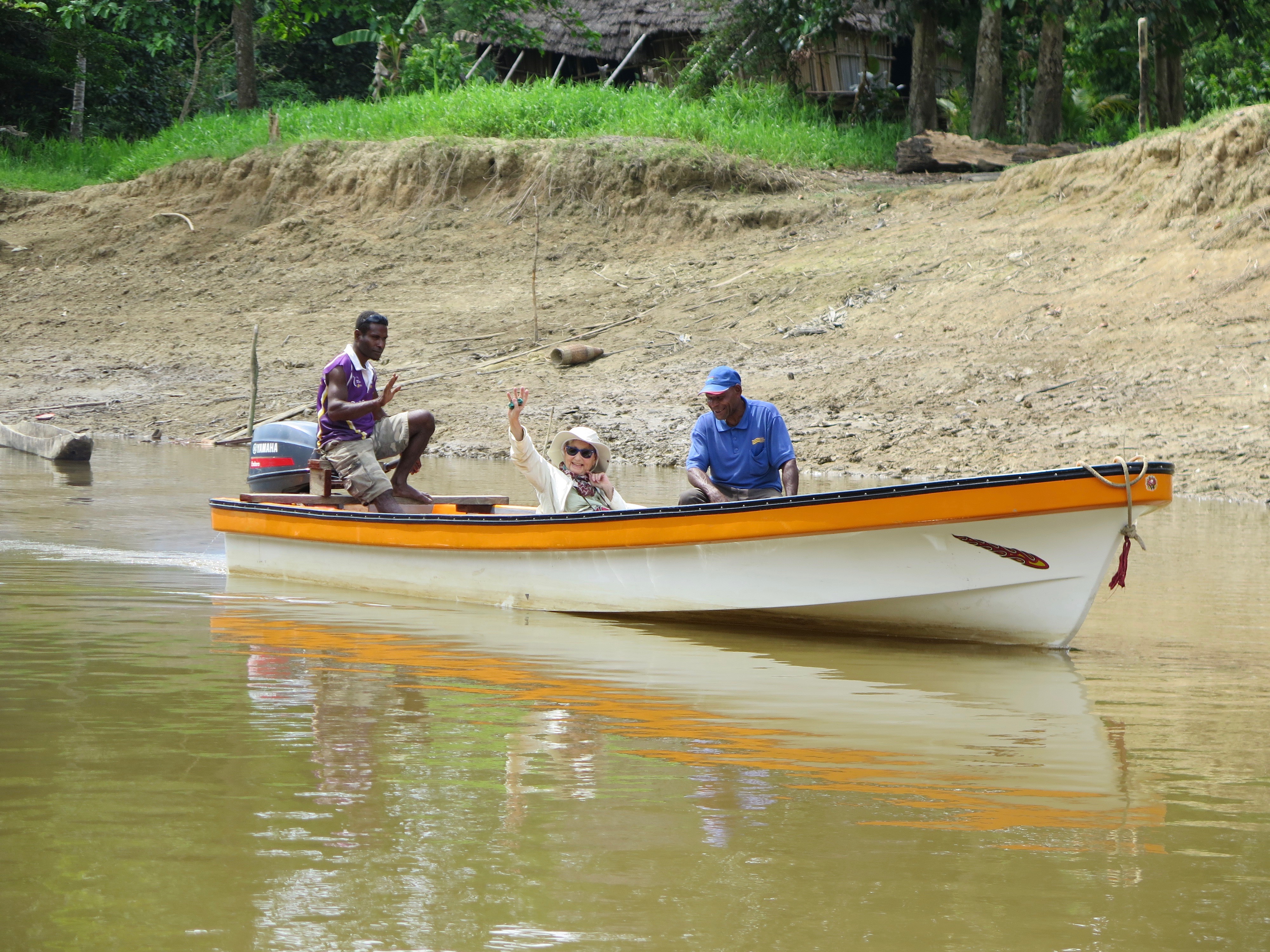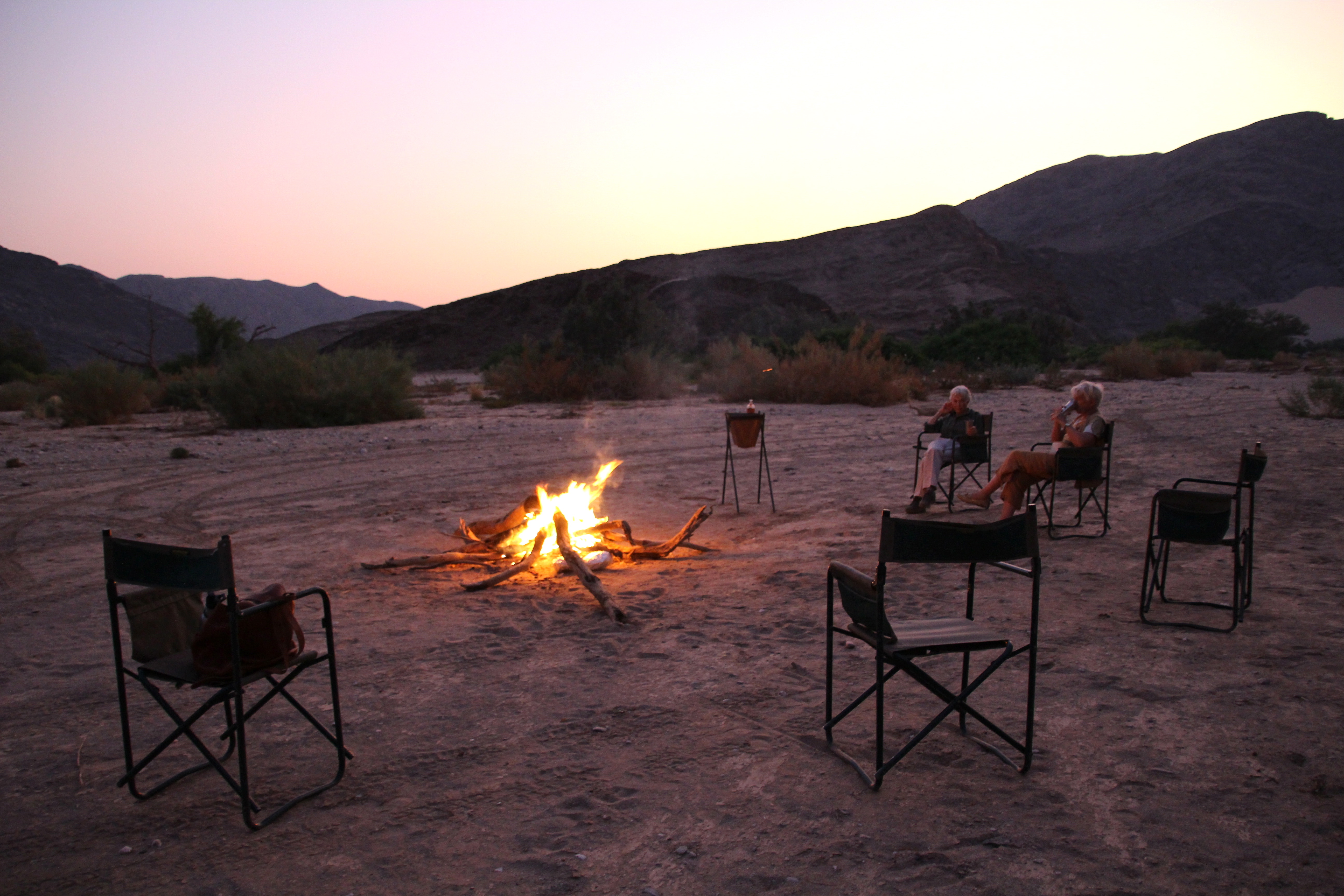Who ever said the end of youth meant the end of adventure?
Rosemary had come to Papua New Guinea for the birds. She was sparrow-like herself: tiny, fine-boned, with a tuft of white hair crowning an inquisitive, blue-eyed face. She was 85, just six months recovered from a hip replacement, and traveling alone, as she had for the past ten years.
“I’m afraid,” she trilled in a plummy English accent, on the first day we met, “that I’ve outlived all my husbands.” There had been three of them.
At one time, I might have been shocked to find a frail elderly woman journeying unaccompanied in one of the remotest corners of the globe—where headhunters had famously done away with a much sturdier explorer, Michael Rockefeller, just a few decades ago. But by the time I met Rosemary, on the deck of a rough-hewn lodge overlooking New Guinea’s western rainforest, I had already encountered several other, similarly intrepid women who had decided to spend their advanced years seeking adventure.
Some of these ladies (who I began to privately, affectionately think of as “old birds”) just wanted to see the wonders of the world, after spending decades as wives, mothers, and caretakers. At her home in Derbyshire, Rosemary told me, she had grown to love watching the ordinary birds—chaffinches and wrens—that visited her garden. But it was only once she’d been widowed a final time, and all her children had grown and moved away, that she’d decided to make a personal mission of seeing more exotic bird species. She’d known hardly anything about New Guinea when she’d booked her trek there—except that it was virtually the only place on earth to see wild Birds of Paradise, famed for their extravagant plumage and bizarre, elaborate mating dances.
“I may not actually see any,” she admitted, as we sat together at jungle lodge. The birds, after all, were rare and elusive—and lived deep in the rainforest, which she would have to navigate with the help of a cane and local guides (who could carry her if necessary). “But!” she said, brightening. “They’re the most wonderful birds! I simply shan’t forgive myself if I don’t try!”
Before Rosemary, there had been Jane and Francoise, whom I’d met on safari in the barren, brick-colored wilds of Namibia. Solo travelers in their eighties, they’d each left behind comfortable home bases (a sprawling ranch in West Texas and a castle estate in Belgium, respectively), to spy endangered desert-adapted lions, elephants, and rhinos in their native habitat. But over the two weeks that we traveled together, I learned there were other, more poignant factors that had prompted them to make separate odysseys to this same far-flung place—where Internet and cell-phone connectivity were nonexistent, and the stark, rocky plains were empty as moonscapes.
Both of them, it turned out, were in mourning. Just a few months earlier, Jane had lost her son to a long, agonizing battle with cancer. Francoise, meanwhile, had spent the previous year bearing witness to a beloved granddaughter’s descent into drug addiction. After yet another failed stint in detox—which Francoise had paid for— Francoise had booked the safari for herself, as a personal sort of rehab.
Though they’d been strangers to one another, I’d watched the two women form an immediate bond. They spent the days scouting wildlife from a shared bench seat in our Land Cruiser, lifting their binoculars and exclaiming in unison over each dusty zebra herd and stately giraffe, giggling at the ostriches whose fluffed feathers looked like tulle skirts. In the evenings, they pulled up adjoining canvas chairs in front of our campfire, chatting animatedly over their enamel plates and bottles of lukewarm beer. Sometimes one of them would cry, and the other would grasp her gnarled arthritic hands in her own.
I was deeply moved by these women and their bravery. And I knew they must have struggled far more than I saw, especially in locales where travel wasn’t easy for anyone. In Namibia, our safari group spent hours each day driving on punishingly rough dirt roads, which set my teeth rattling inside my skull (and must have been murder on octogenarian joints). But Jane and Francoise never once grumbled about it—nor did they complain about sleeping in tents on the hard desert ground, or squatting inelegantly over hastily dug pit toilets. In New Guinea, where we all endured ferocious mosquitoes, lodgings with intermittent running water, and walking tracks so muddy they threatened to suck the boots off our feet, Rosemary soldiered on resolutely, even on the morning when she accidentally knocked her hearing aid overboard during a riverboat excursion.
“Oh, drat!” she’d cackled, a little too loudly, to the rest of us on the boat. “Well, I suppose you’ll just have to shout at me now!”
I wish I could say I’ve always felt fondness toward my much-older traveling companions. But the truth is that there were times, especially in my younger days, when I didn’t regard them very charitably. On a sea-turtle conservation trip I took to Costa Rica in my thirties—which involved night walks on a pitch-dark beach to look for nesting female leatherbacks—I can clearly remember my exasperation with a fellow traveler in her 70s, whose blundering gait and loud grousing scared the turtles away night after night.
“Oh!” she’d moan, stumbling along the sand, wildly waving her arms at the moths swarming her headlamp. “This is awful! Why didn’t I just stay home with my cats?”
“Yes,” I kept muttering under my breath. “Why didn’t you?”
It was the first “old bird” I met, though, who made an especially deep impression on me. I’d met her just after graduating college, when I decided to take a cross-country road trip in a grubby, ancient bus along with 20 other people (and their backpacks, guitars, and copious stashes of marijuana). All of us were itching to see parts of the country we’d only heard about—The French Quarter in New Orleans, the Grand Canyon—and all of us were in our early twenties. With one exception: a flame-haired 60-something named Rusty.
For the most part, as we drove from the east coast to California, Rusty fit right in. She hiked and prepared meals alongside us, rinsed her dirty clothes in stream beds and strung them up, as we did, on tree branches to dry. On clear nights, she’d spread her sleeping bag next to ours under the stars.
One windy evening at a campsite in southwestern Utah, though, Rusty and I sat together in the lee of a red-rock escarpment, sharing a joint while we watched the sun set. The feathery clouds, fuchsia shading to purple, looked like they’d been applied to the sky with a paintbrush. The sight made me wistful.
“I’m so glad I’m getting to see all this,” I blurted, suddenly feeling sorry for myself. “When I get home I’m going to have to find a real job and start paying off my loans and being a grown-up. “The fun’—I sniffed back tears—“the fun will be all over.”
For a moment, Rusty was silent next to me. We both watched the darkening sky. Then, out of nowhere, she erupted in explosive, snorting laughter.
“Oh, honey,” she gasped, patting my knee. “I’m sorry, but…what a load of horseshit! You think only young people get to have fun? Get over yourself!” Handing me the remains of the spliff, she got up and strode off, still guffawing.
I recall this conversation more and more frequently these days, especially now that I am creeping up on the age at which I’ll soon be considered an old bird myself. Who ever planted the idea in my head that the end of youth meant the end of adventure? Of exciting journeys, thrills, new experiences? Not Rusty. Not Jane or Francoise, either.
On our last day in Papua New Guinea, I crouched for two hours with Rosemary on a muddy jungle riverbank, waiting for a Twelve-Wire Bird of Paradise to appear. Our guide had insisted he’d seen a magnificent specimen countless times in this very spot—but though we spied all sorts of other birds, hornbills and kingfishers and rainbow lorikeets, the avian celebrity never showed.
As I watched Rosemary clamber laboriously back into our motor launch, tightly gripping the arm of our guide for balance, I felt momentarily sorry for her. She’d come so far to see this particular bird; and who knew if she’d ever get another chance?
But my melancholy lifted as soon as we’d settled into the boat, and Rosemary turned to me. She was beaming.
“Wasn’t that marvelous?” she cried. “So many birds! Even though we didn’t see the one…I feel awfully lucky, don’t you?”
I nodded emphatically at her, as our guide started the engine and we began the trip back toward the lodge, and our flights home.
I did. And I still do.




